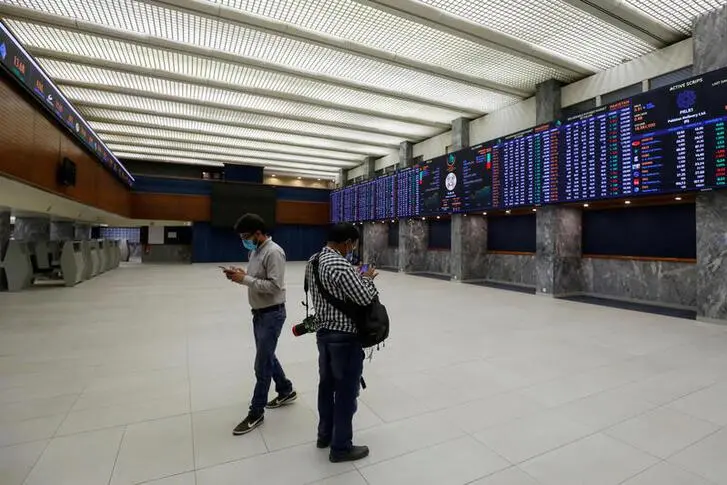PHOTO
KARACHI - Pakistan's benchmark share index rose 2% to a fresh record high in early trade on Thursday, basking in the afterglow of a government budget that aimed to strengthen the case for a new bailout from the International Monetary Fund.
The government last week unveiled a budget that cheered investors as it avoided an anticipated increase in capital gains tax, despite an ambitious tax revenue target.
The market extended the post-budget rally on Thursday upon reopening after a five-day break and breached the key level of 78,000 for the first time during intraday trade. The index was last up 2.47% to 78,896 points at 0911 GMT.
The rupee was trading at 278.5 per dollar, up 0.2%, and steady since the budget was proposed.
The index has almost doubled since Pakistan signed a nine-month standby arrangement with the IMF last summer.
"Pakistani equity investors are driving the PSX higher, continuing to unlock valuations on better sentiment, which is a trend that began when Pakistan signed its last IMF deal last summer," said Amreen Soorani, head of research at JS Global Capital.
"The trend paused briefly on anticipation of stricter capital gains taxes, which did not materialise," she said, adding that the index is trading at a four times price to earnings ratio despite the recent rally and offers attractive dividend yields.
Bank stocks like UBL, HBL, MCB , Bank Alfalah, and Habib Metropolitan Bank , and Interloop, one of Pakistan's largest textile exporters, were the top movers with gains of over 3% and 4%.
Adnaan Sheikh, assistant vice president of research at Pak Kuwait Investment Company said the market's reaction is also due to the central bank's decision to cut its key rate by 150 basis points last week, it's first rate reduction in nearly four years.
Apart from the capital gains tax, analysts said the budget and other revenue measures were in line with expectations and key to sealing a new IMF programme, which include a challenging tax target of a near-40% jump from the current year, and a sharp drop in the fiscal deficit to 5.9% of GDP from 7.4% for the current year.
Sheikh said the strict budgetary measures to secure fresh funding from the IMF will likely also attract more foreign investors to the market.
Pakistan's lower house of parliament is set to meet later on Thursday to debate on the next fiscal year’s federal budget.
(Reporting by Ariba Shahid in Karachi Editing by Jamie Freed, Shri Navaratnam, Peter Graff)




















